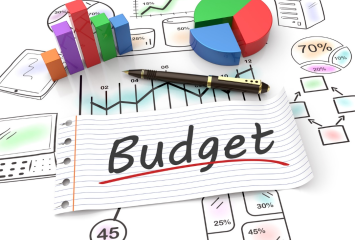

This course will teach you how to budget and forecast from the ground up. This course is designed to prepare people for budgeting and forecasting as well as familiarize them with the process. Budgeting plays an important role in all organizations, so this will support them in their career. When budgeting is performed right, it has a number of advantages.
Understanding and contributing to the budgeting process will help you become a more valuable employee or a more effective business owner. Teamwork, coordination, and quality development are all helped by budgeting. After
all, most of us are not at ease in the accounting world.
Understand the principles behind best practice financial management
Explain the importance of budgeting within a strategic framework
Build a robust budgeting process within their organization
Know when and where to use various budgeting approaches such as zero- based budgeting
Forecast future performance by better analyzing revenue and cost drivers
Use effective variance reporting to track organizational performance
Make use of Excel functions and tools that are particularly suited to the budgeting process.
Introduction to Budgeting and Forecasting
Importance of budgeting and forecasting in financial planning
Key concepts and terminology
Strategic Financial Planning
Linking strategic planning with budgeting and forecasting
Developing a strategic financial plan
Budgeting Techniques
Zero-based budgeting
Incremental budgeting
Value-based budgeting
Activity-based budgeting
Forecasting Techniques
Qualitative forecasting methods (e.g., Delphi method, market research)
Quantitative forecasting methods (e.g., moving averages, regression analysis, time series analysis)
Creating a Budget
Steps to develop a comprehensive budget
Identifying revenue and expense drivers
Allocating resources effectively
Variance Analysis
Understanding variances between budgeted and actual figures
Analyzing variances to identify trends and areas for improvement
Using variance analysis to adjust future budgets
Financial Performance Measurement
Key performance indicators (KPIs) for budgeting and forecasting
Monitoring and evaluating financial performance
Using Excel for Budgeting and Forecasting
Excel functions and tools for budgeting (e.g., pivot tables, solver)
Creating dynamic budgets and forecasts in Excel
Risk Management in Budgeting and Forecasting
Identifying financial risks
Developing strategies to mitigate risks
Case Studies and Practical Exercises
Real-world case studies to apply theoretical knowledge
Financial Analysts
Accountants
Finance Managers
Budget Officers
Business Analysts
Controllers
Project Managers
Students and Graduates in Finance and Accounting